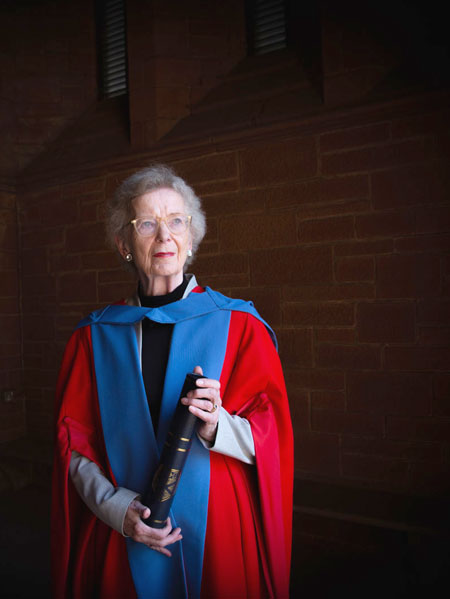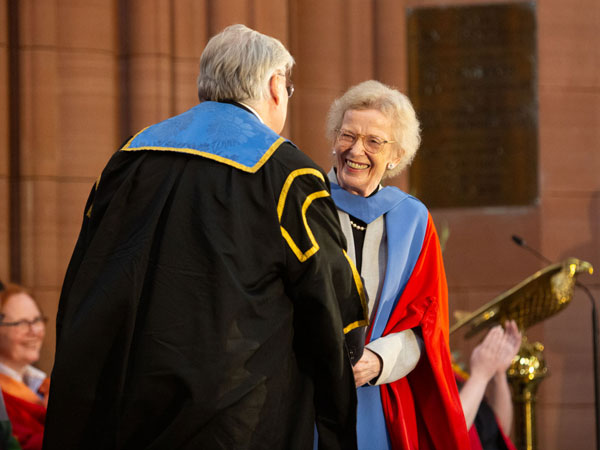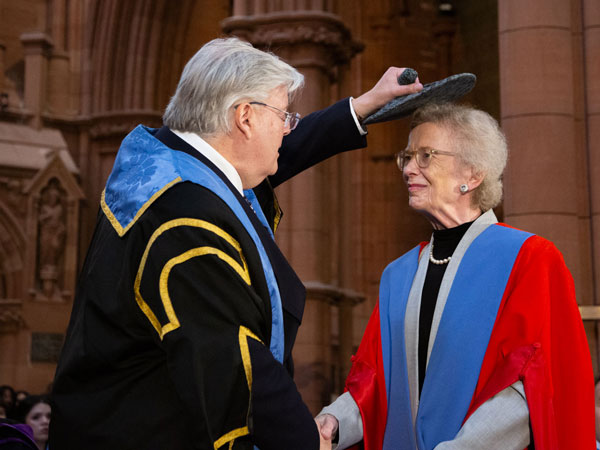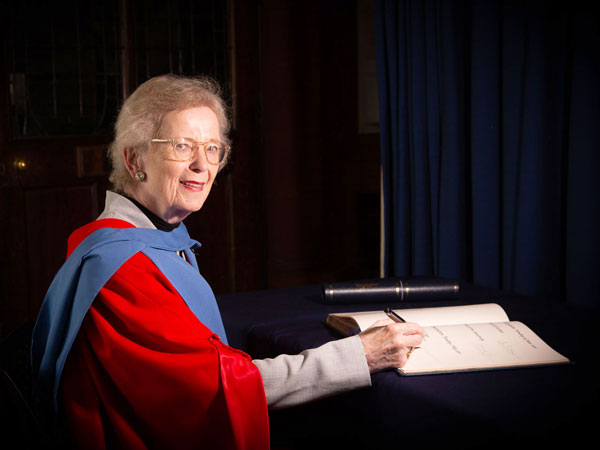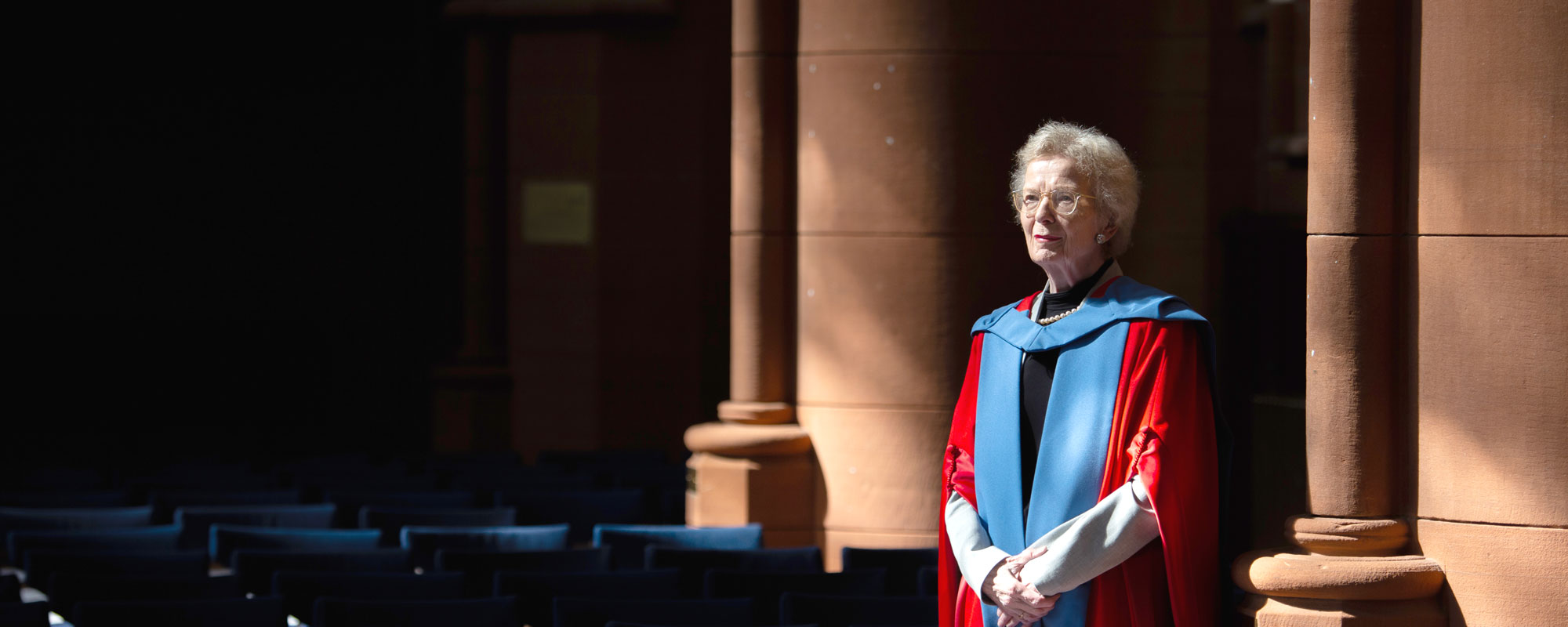
Honorary DegreesProfessor Mary Robinson
Meet Mary
A former President of Ireland, and then UN High Commissioner for Human Rights, Professor Mary Robinson has been a pioneer in all her professional accomplishments. She is a tireless campaigner for human rights and climate justice.
International leader
Professor Robinson is a barrister who fought and won landmark legal cases in Ireland. She's an academic who, at age 25, became the Reid Professor of Law at Trinity College, Dublin. Elected as the first female President of Ireland, Mary enjoyed unprecedented popularity when in office, and as a UN High Commissioner on Human Rights, she became a strong and effective voice in leading international development and giving representation to the marginalised. A founding member of The Elders, alongside Nelson Mandela, Desmond Tutu and others, Mary has used her voice and networks to effectively campaign for a better world. She was appointed the Chair of The Elders in 2018 following the death of Kofi Annan, and remained until 2025. She was also a UN Special Envoy for Climate Change, dedicating her life to the threats of climate change and the necessity for climate justice.
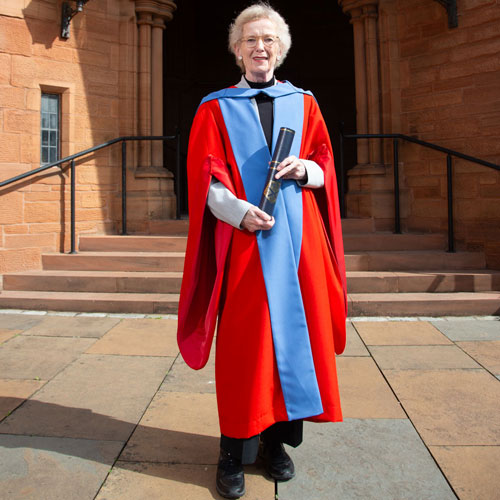
Watch
Watch Professor Robinson receive her Honorary Degree, and hear what she had to say to our students at their graduation ceremony.
You are never too young to lead, and you are never too old to learn.
We caught up with Mary to see how she feels about her Honorary Degree.
Congratulations. How do you feel about receiving your Honorary Degree from the University of Strathclyde today?
It's always a great honour to be honoured by a university. I have a great regard for the role of universities in our world, and it's more necessary than ever, I think, because they're thought leaders. So I feel very honoured.
What’s the most important lesson you’ve learned in life?
I think it's a lesson I learned quite early when I became very unpopular in Ireland as a young senator trying to reform family planning. I was so shaken by the criticism that I wobbled, and I became quite depressed. And then I realised that if you really believe in something, you must be prepared to pay the price, you must be prepared not to be so popular. It's one of the most important lessons of my life, and I’ll probably share it today with the graduates.
What advice do you have for our graduates?
I think the advice is that this is a really very difficult world, but you have to have hope, and hope is action. Hope is finding your way of making a difference, and the world needs young people who are prepared to make a difference.
